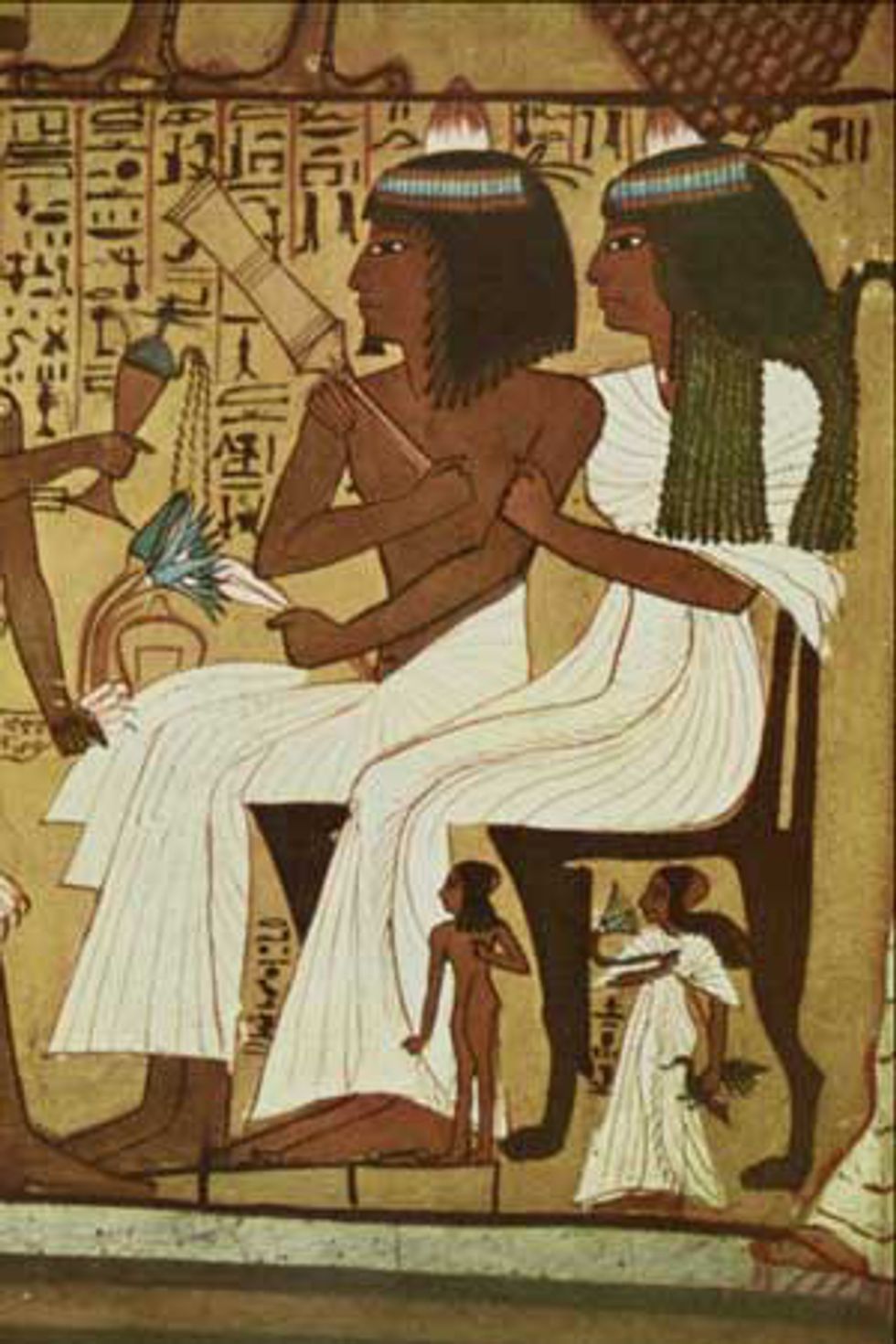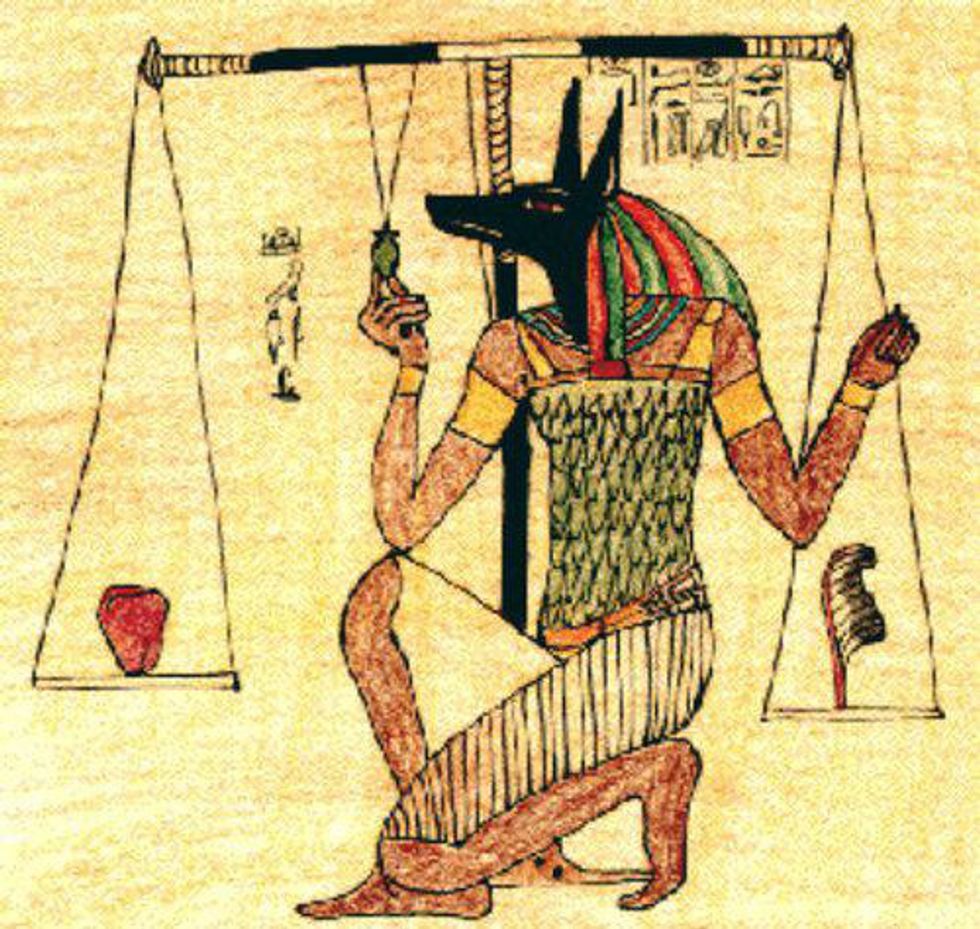The following sources contributed to the information found in the article: "Daughters of Isis" by Joyce A. Tyldesley, "The Woman Who Would Be King," by Kara Cooney," Women in Ancient Egypt," by Gay Robins, and lectures from Taylor University Assistant professor of History Dr. Kevin L. Johnson.
With life expectancy hovering around 30 and incredible infant mortality rates, one wonders how Ancient Egypt thrived for 3,000 years. Would you have made your dynastic mark or died from smallpox? The following choose your own adventure will show if you could adjust to ancient Egyptian life.
You'll either walk like an Egyptian or lie like a mummy.
Scenario One: You're a male in your early 20s. You have a relatively stable job in the middle class (just a step above the peasants). Now, you can marry. You would like to ask the hand of a Nubian girl. Unfortunately, she's a foreigner. Which of the following will you do?
A) Marry her!
B) Marry someone Egyptian
C) Stay single
If you chose A, your family probably won't have a problem with the marriage. In fact, Egyptians welcomed interracial marriages. Unless you live during the time Rome conquered Egypt, you will receive minimal push back.
If you chose B, you selected a somewhat political marriage. Egyptian families would often marry close to the family (i.e. sisters and cousins) so the property division wouldn't get messy. Although you picked the less-romantic option, no one will object.
If you chose C, some Egyptian males stayed single. Granted, your culture places a high value on your legacy, so you probably chose the worst option out of the three.
Scenario Two: You live in the Old Kingdom and spent a long day building the pyramids so your wife and children can receive grain back at home miles away. Curtailing nearly getting your head smashed by a pyramid block, you retreat to grab a drink. You have the choice of beer or water. What do you refresh yourself with?
A) Water, duh. I'm dehydrated.
B) Beer all the way
If you chose A, despite your dependence on the Nile, if you drink water you have opened up your body to a number of diseases. You got a nasty goblet of water and caught dysentery and died.
If you chose B, you and every other worker went with this option. Even though beer has roughly 2% alcohol content in Ancient times, several laborers got buzzed from guzzling cups of this after a grueling day's work.
Scenario Three: You're a woman. You catch a robber in your late husband's tomb. This heinous crime could possibly disrupt your spouse's journey in the afterlife. Desiring justice (and considering Egypt has a death penalty for tomb robbery), you want to bring him to court. You:
A) Take him to court!
B) Women can't speak in court. I have to let this one slide.
If you chose A, woman or a man, the law sees you as equals. Women in Ancient Egypt have a considerable number of freedoms (in comparison to Ancient Rome or Greece). They can adopt children on their own, divorce their husbands, and speak out against a crime in court (we have records dating back to 500 B.C. of this). You will bring justice against this criminal who wronged your husband.
If you chose B, did you forget you grew up in Ancient Egypt? Women can bring cases to court. You shamed your husband in the afterlife. That is, if he's still alive. If more tomb robbers come and tamper with his corpse, he might just perish thanks to you.
Scenario Four: You're a middle-class woman in Ancient Egypt. Your husband just died and left you with little inheritance. You have just enough money to either give him a nice burial or keep it for your five children who miraculously escaped the infant mortality rate. You:
A) Bury him in the desert regions. His body will remain intact in the arid climate and the dry sand.
B) Build a nice tomb for him complete with expensive little paintings and statues of him. He's your husband, after all!
If you chose A, some jackals unearthed your husband and feasted on his flesh. He likely died in the afterlife because Egyptians believed one must keep their bodies intact in order to survive postmortem. He perished, and odds are, the gods ain't gonna be happy with you when you get to the afterlife either.
If you chose B, your family may starve, but your husband will thrive in the afterlife (if his heart doesn't outweigh the feather of Truth). Not to mention, you planned ahead with the little figurines and paintings of him. If temple robbers tamper with his body, his spirit can dwell in the statues or paintings as a last resort. Sure, you might die soon, but at least you'll join your hubby.
























